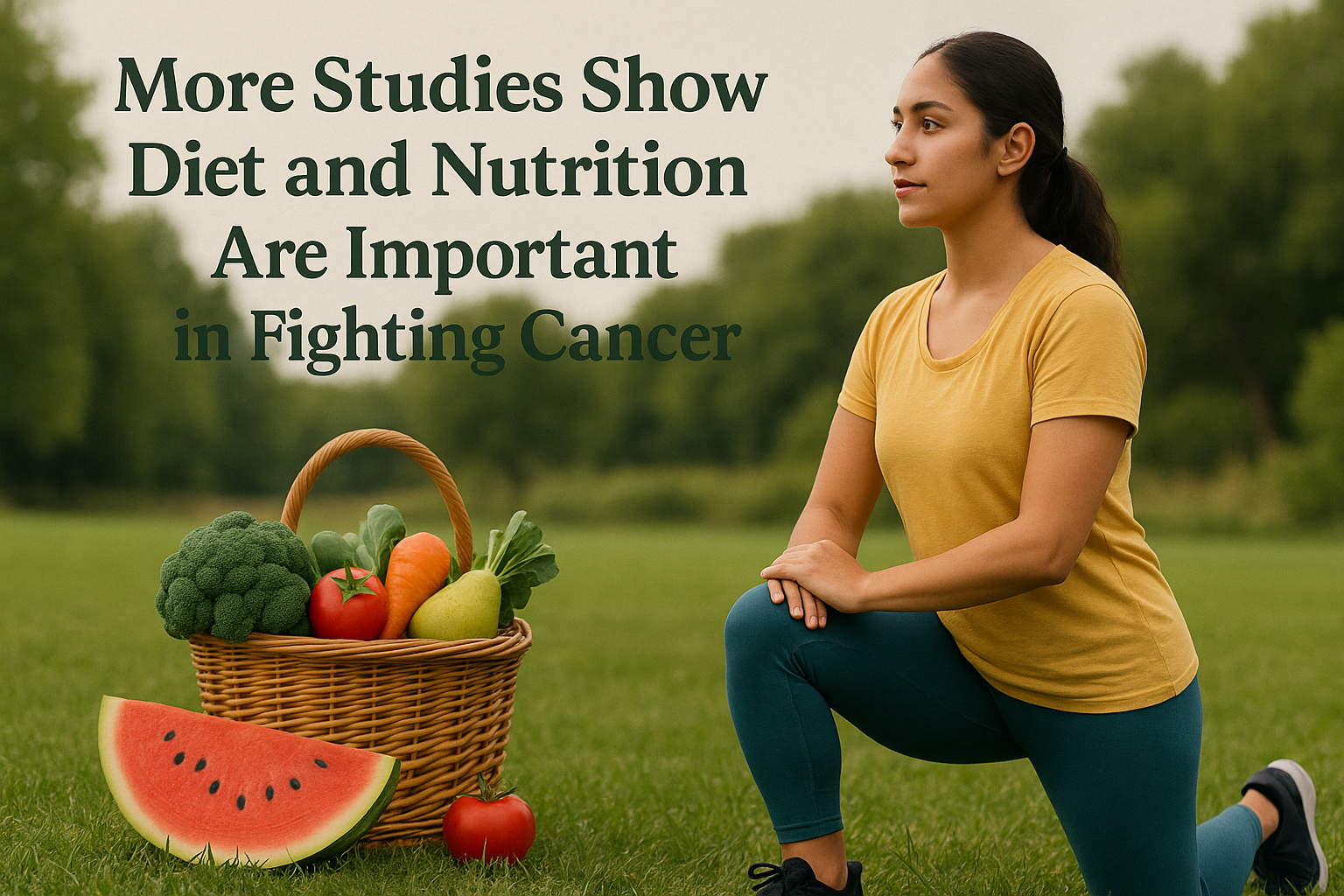New research highlights the role of diet and nutrition in cancer prevention
New and continuing research — some discussed in other Dr. Rath columns — continues to assert this
powerful truth: the role of diet and nutrition in preventing, treating, and recovering from cancer simply
cannot be overstated. Though there is no escape from the role that genetics and environment play in your risk
of developing cancer, lifestyle factors, specifically the food we eat and amount of activity we get, is behind a lot of it.
Milestone Carried Out To Prove That Lifestyle Matters
One of the most persuasive recent studies, paid for by the Canadian Cancer Society, followed patients with
colorectal cancer who underwent a formal, supervised three-year exercise program. Quite remarkable were the
results: participants had a 28 percent lower risk of cancer recurrence and a 37 percent lower risk of death than
those who did not participate in the program. This underscores that lifestyle is not only a background factor, but
that it can be a potent front-line weapon against cancer.
Nutrition and Recovery: Expert Tips
Jennifer Bires, Executive Director, Peterson Life with Cancer at Inova Schar Cancer Institute The medical community
is catching up to what most patients already know: that healthy meals and movement come together to make a real
difference. “Bires points out that there is a higher quality of life, mental well-being and longevity when people with
Cancer patients or those in remission need to eat healthy and stay active.
She advises patients to concentrate on sustainable changes, such as adding whole grains, fruits, vegetables, lean
protein and healthy fats to their diets. Physically, walking, yoga, stretching and light strength training can help
offset this cancer fatigue, as well as some side effects of treatment
Barriers and Shifting Focus
Despite strong evidence, lifestyle-based treatments are still underfunded and underutilized.
in clinical cancer management. There’s no profit in encouraging physical activity or home-cooked meals, Bares
observes. Whereas drugs give the pharmaceutical industry plenty to profit from, not much money is to be made
from food and fitness. Hence, their unassuming presence may in fact be right under our noses, lurking under the
radar, undervalued for the already demonstrated positive effect.
But that is starting to change. Registered dietitians and physical therapists are being incorporated into oncology
care teams more and more by hospitals and cancer centers. Educational workshops, cooking lessons, and movement
therapy are on the rise, offering patients means to take control of their health.
The World Cancer Research Fund International has just released a significant report that emphasizes the critical
role of diet in lowering cancer risk. Their recommendations strongly advise:
Consuming a high–fiber diet, filled with fruits, vegetables and whole grains
- Reduce Processed and Red Meats
- Limiting sugary drinks and ultra-processed food
- There are also suggestions fo avoidance (or moderation) of alcohol
- Keeping body weight in control
These findings, which are drawn from 20 years of science, are relevant to prevention as well as post-diagnosis health.
Anti-Cancer Diets and What to Look Out For
Many in entail health professionals believe in plant-based or anti-in amatory diets like the Mediterranean one.
This diet emphasizes fresh fruits, vegetables, beans, fish, and olive oil, while allowing occasional meats and sweets and limiting processed foods.
These foods aid in decreasing inflammation and oxidative stress which are two factors that add to cancer development.
On the other hand, modern diets are just as much a minefield — refined sugar and trans fats and chemical preservatives
can increase cancer risk as well. Patients are encouraged to read labels closely and restrict foods with artificial ingredients
, added sugars and refined grains.
LIFESTYLE AS THERAPEUTICS: EMPOWERING PATIENTS
The cancer journey is grueling, physically and mentally, but lifestyle changes provide a sense of control.
Studies have found that patients who make positive changes in their diet and exercise regimen feel more
empowered and have fewer side effects and better emotional well-being.
Now, support groups and survivorship programs frequently intrude on the medical setting with nutritional
coaching and individualized fitness plans. These initiatives both help by healing and seed healthy behavior changes
while motivating patients to keep their health a lifelong priority!
Summary
Nutrition: An Integral Part of Cancer Management
Nutrition and exercise are no longer the domain of zany fringers in oncology; they’re becoming integral to
contemporary cancer care. Given the good evidence behind them, it is important that patients are offered education
so that they can take ownership of their lifestyle.
Medical treatments—including chemotherapy, radiation therapy, and surgery—are essential, but there is also conclusive evidence supporting the role of lifestyle changes in improving outcomes.
evidence on this point: eating right and exercising are both essential to improving my odds. It is now time to bring
these hidden solutions out into the open and recognize them as powerful weapons in the arsenal against cancer.


4 thoughts on “New research highlights the role of diet and nutrition in cancer prevention”